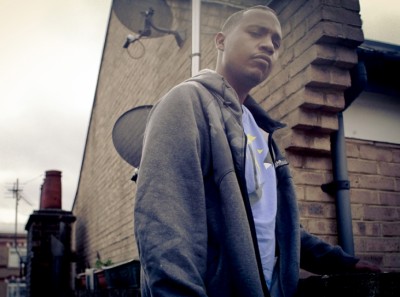Blog April 30, 2014
RIP DJ Rashad
DJ Rashad, the Chicago-based electronic musician and footwork groundbreaker who died April 26 at age 34, was perhaps an unlikely figure for Afropop to cover closely. We first explored his work in our Hip Deep program "Midwest Electric," in which we traced the African-American roots of the house and techno music that poured out of Chicago and Detroit to take over dance floors across the world and (as far as we know) played Rashad on public radio for the first time. From there, his consistently and increasingly brilliant work became a touchstone of sorts, a frequently referenced example in our staff's constant discussion about the merits of (and issues with) the electronic music pouring out of nations from across the diaspora.
As one might imagine, an organization whose musical tastes first developed around the talking drums of King Sunny Ade and Gilberto Gil's acoustic strumming has sometimes found the transition to harsher, more electronic styles like Angola's kuduro or Brazil's funk carioca challenging. And for the American portion of the diaspora, few artists encapsulated these challenges better than Rashad and the footwork style he helped to define. Sonically harsh, digitally repetitive and gleefully vulgar, his music was often a difficult, if not impossible, sell to listeners who craved the consummate musicianship that defined the analog era.
Yet there was an undeniable beauty in the fractured rhythmic soundscapes Rashad conjured, and at his best (something which he seemed to achieve with dizzying frequency), his music was not only impossibly danceable but emotionally vital, filled with an expressiveness that belied the spare, synthetic materials from which it was constructed. Just as willing to sample a rare jazz record as a current rap hit, as concerned with headphones as the dance floor, euphoric and carnal and tender and angry and soulful, Rashad's work was capable of ripping up pop music from the ground floor and rebuilding its mangled form into something of startling freshness. The debate about the losses and gains of our gradual transition to electronic music may be far from over, but it is clear that in this case, we have lost a profound talent.
http://youtu.be/bGUqf81M3b0









